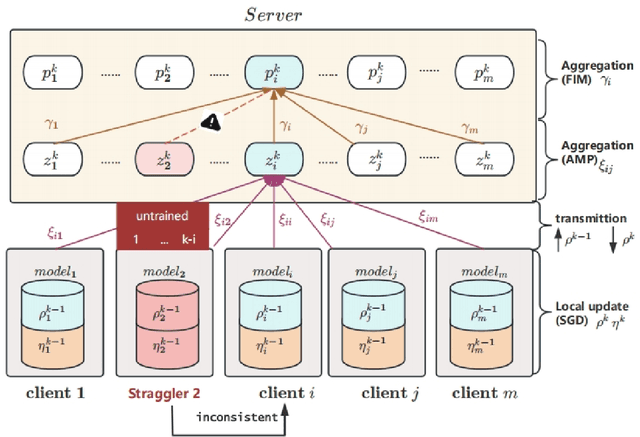FedSAF: A Federated Learning Framework for Enhanced Gastric Cancer Detection and Privacy Preservation
Paper and Code
Mar 20, 2025



Gastric cancer is one of the most commonly diagnosed cancers and has a high mortality rate. Due to limited medical resources, developing machine learning models for gastric cancer recognition provides an efficient solution for medical institutions. However, such models typically require large sample sizes for training and testing, which can challenge patient privacy. Federated learning offers an effective alternative by enabling model training across multiple institutions without sharing sensitive patient data. This paper addresses the limited sample size of publicly available gastric cancer data with a modified data processing method. This paper introduces FedSAF, a novel federated learning algorithm designed to improve the performance of existing methods, particularly in non-independent and identically distributed (non-IID) data scenarios. FedSAF incorporates attention-based message passing and the Fisher Information Matrix to enhance model accuracy, while a model splitting function reduces computation and transmission costs. Hyperparameter tuning and ablation studies demonstrate the effectiveness of this new algorithm, showing improvements in test accuracy on gastric cancer datasets, with FedSAF outperforming existing federated learning methods like FedAMP, FedAvg, and FedProx. The framework's robustness and generalization ability were further validated across additional datasets (SEED, BOT, FashionMNIST, and CIFAR-10), achieving high performance in diverse environments.
 Add to Chrome
Add to Chrome Add to Firefox
Add to Firefox Add to Edge
Add to Edge